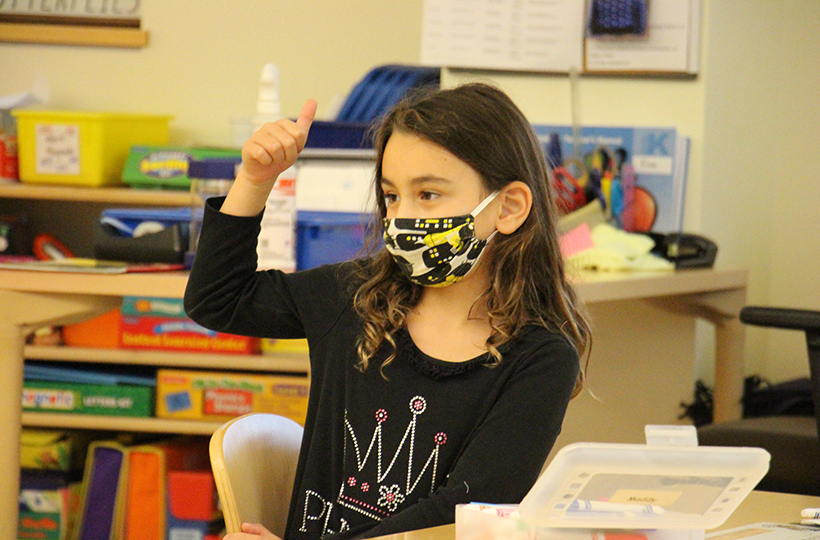The act of voting couldn’t be more in line with Rashi’s values. This year, a series of lessons engaged Rashi students in discussions on civic duty, democracy, and voting, in anticipation of the election this coming Tuesday, November 3.
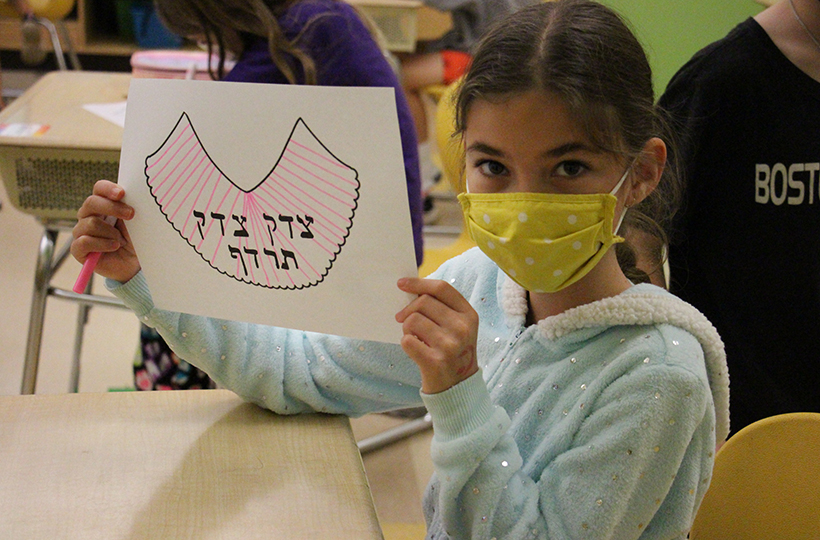
Here are how each of our core values relates the act of voting:
- Limud/Learning – learning about the candidates and/or issues
- Tzedek/Justice – voting can help achieve greater justice for people
- Kehillah/Community – voting is a way to have one’s voice/community represented
- Kavod/Respect – people with different opinions should still be respected, but someone’s opinion shouldn’t take away the rights of other people
- Ruach/Spirit – ruach (spirit) for your community (whether that be Rashi, your town, our the country). One way to represent this spirit is by voting
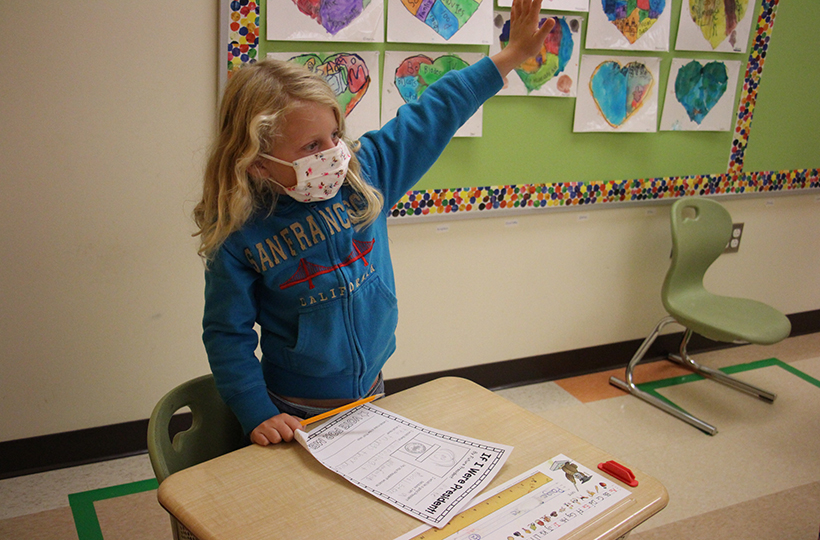
The Voting Committee is led by Stephanie Rotsky (Social Justice Coordinator) and Sherman Goldblum (Social Justice Assistant). A team of educators from across the school are members of the committee:
- Rachel Liptz (Kindergarten Teacher)
- Sarah Monderer (Grade 4 assistant teacher)
- Keith Civin (Middle School Social Studies Teacher)
- Joni Fishman (Middle School Dean of Students)
- Nitzan Resnick (Curriculum and Instructional Coach)
We want to give you a taste of some of the exciting work happening around the halls of Rashi.
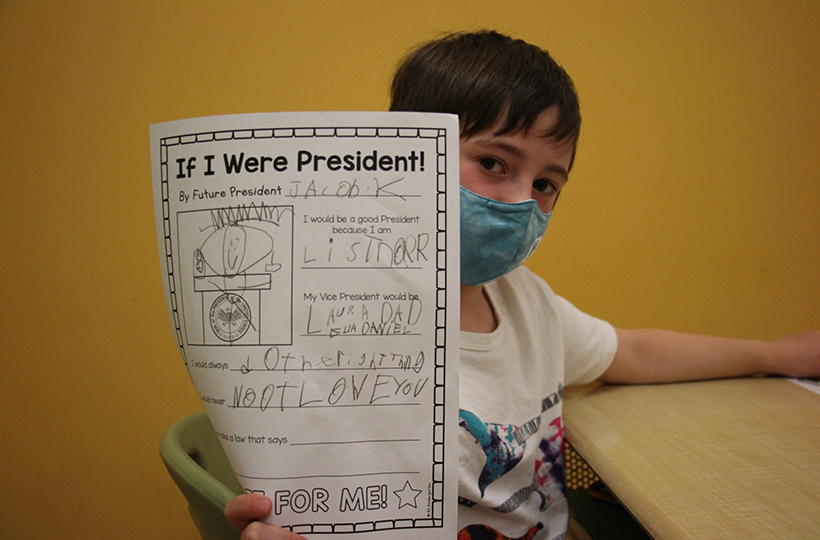
On Tuesday, every Rashi student will experience the act of voting at school. Sherman, our Social Justice Assistant, said “I would say that lessons about voting are important because they teach our students a way to use their voice without speaking. Moreover, it shows children a central piece of our society and how it works in a theoretical and practical sense. Our lessons ranged from”what does it mean to vote?” with the kindergarten to lessons on the history of voting with the Middle School.”
“I would say that voting is important because it teaches our students a way to use their voice.”
Kindergarten-Grade 2
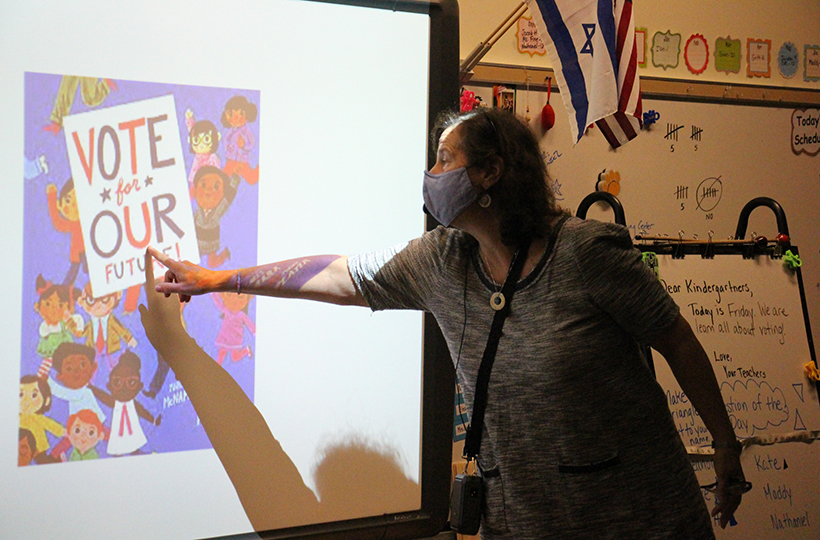
Kindergarten, Grade 1, and Grade 2 lessons are focused on rule-making and the fundamentals of voting. Students and teachers are engaging in thoughtful conversations about these key ideas:
- Everyone has a voice.
- Your voice matters.
- Your voice can be more powerful (easier to be heard) with other voices.
- Voting is an example of using your voice to make something happen.
For example, Kindergarteners are learning about the national election and the voting process by first thinking critically about what rules are, who makes them, and how rules (and laws and policies) might be changed. After thinking last week about rules at home and school, as well as rules individual students would make if they ruled their own island, we now turned our attention to the combined effort of making rules in our classrooms.
Our goal is to hear students’ ideas, find commonalities, and create a few rules that encompass the overarching themes raised. Students will agree to follow these rules and sign a class contract, designed to insure that our classrooms (and playgrounds) are places where everyone can feel safe and learn. As we involve all of our students in creating classroom rules, we hope that they will develop an understanding of how important it is to make voting available to everyone (all Americans who are over 18).

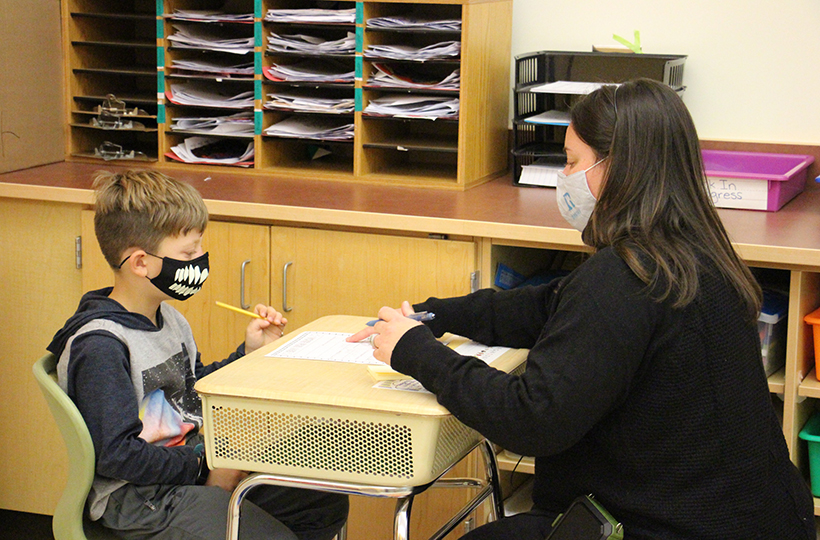
What they’re voting on: K – 2 will be voting on an upbeat song that will be played on the first floor loudspeaker two Fridays a month during dismissal time.
Step you can take: Read “Vote for Our Future” by Margaret McNamara.
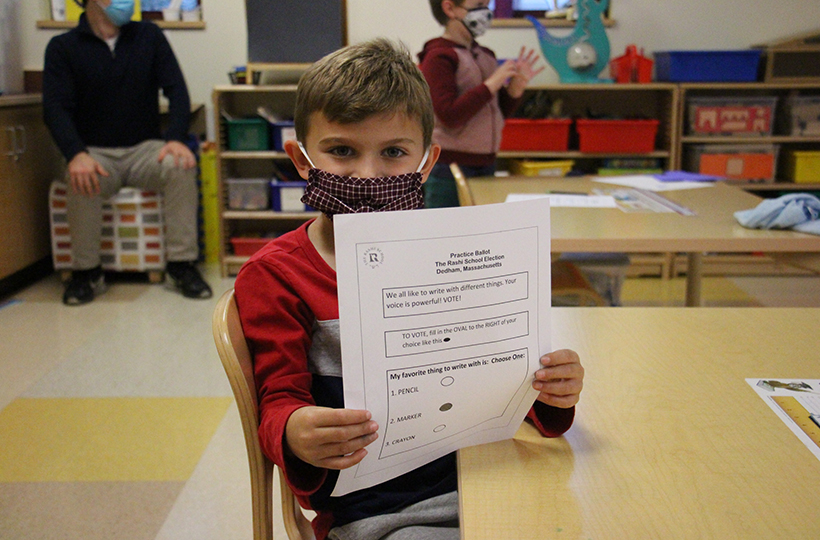
Grade 3-Grade 5
Grade 3, Grade 4, and Grade 5 lessons are focused on how voting is a way to use our voice, and that voting is a direct reflection of Rashi values. Students and teachers engaged in conversation about these ideas:
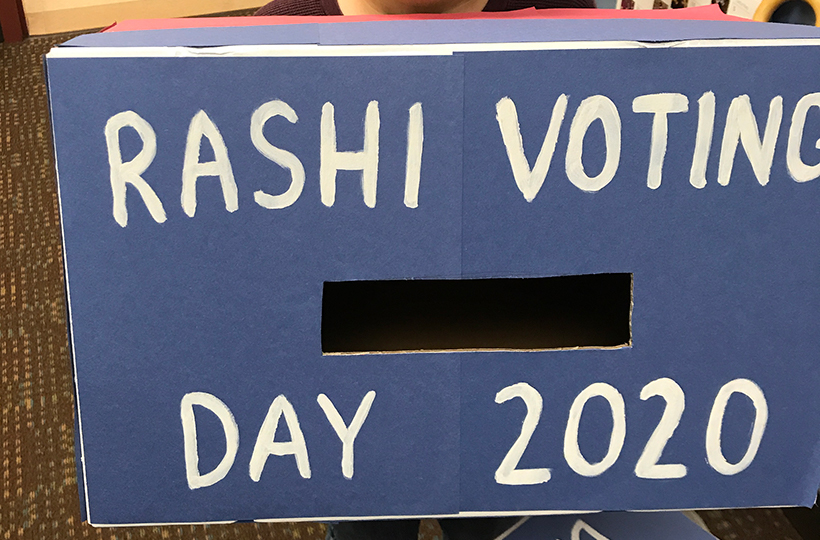
- Everyone has a voice.
- Your voice matters.
- But not everyone gets the chance/opportunity to be heard.
- Many groups are not allowed to vote. Many groups don’t have the same access to vote as others do.
- In the U.S. – voting is a primary way to be heard by our government
In one lesson, students learned about Ruth Bader Ginsburg, who she was, and how we can honor her by voting. They learned about the causes she stood up for and worked tirelessly to uphold and change when necessary, including gender discrimination/gender equality, women’s rights, affordable health care, and equality for LGBTQ+ people.
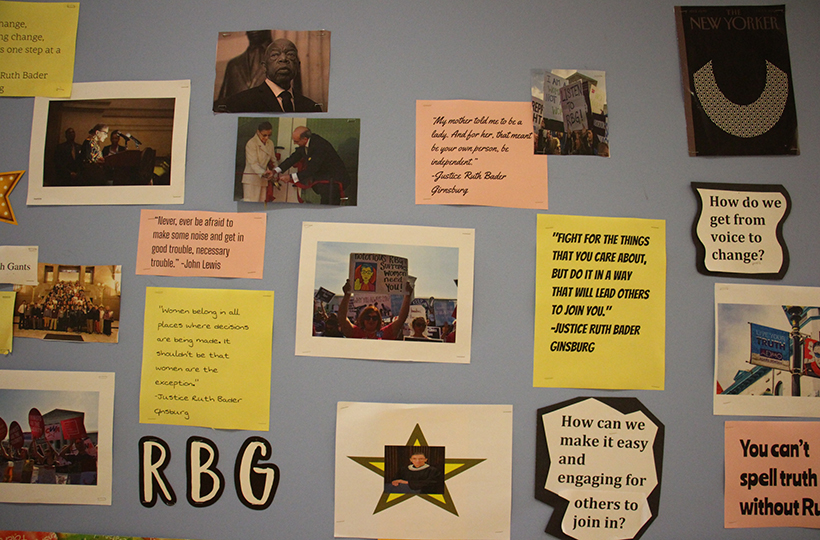
We read a book about her, Ruth Bader Ginsburg: The Case of R.B.G. vs. Inequality. Students connected RBG’s story and life’s work to the Rashi value of Tzedek (justice). She even had the quote “tzedek tzedek tirdof” (“justice justice you shall pursue”) in her office, which is the same text that’s in Rashi’s chadar ochel (dining hall).
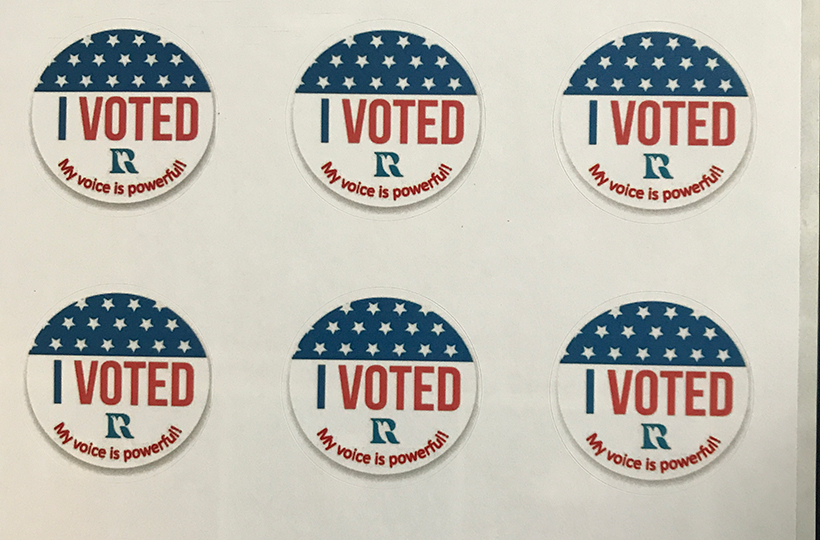
What they’re voting on: Grades 3-5 will be voting on a quote that will be placed on the wall near the library on the second floor. Here are their choices:
- “When the whole world is silent, even one voice becomes powerful” – Malala Yousafzai
- “Fight for the things you care about, but do it in a way that will lead others to join you” – Ruth Bader Ginsburg
- “I am no longer accepting the things I cannot change. I am changing the things I cannot accept.” – Angela Davis
Step you can take: Have a conversation with your Grade 3-5 student about why you think voting is important or a favorite story you have related to a past election.
Grade 6-8
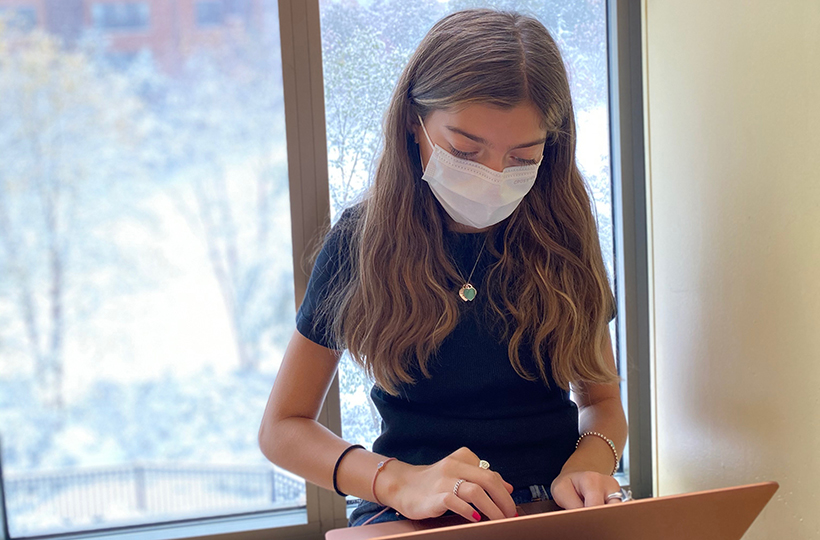
Middle School learned about how everyone’s voice should matter. Here’s one of the big ideas:
- We say we have equal rights to vote, but in reality, there are many groups who are more likely NOT to have the opportunity to vote because of barriers set up – these groups are disenfranchised.
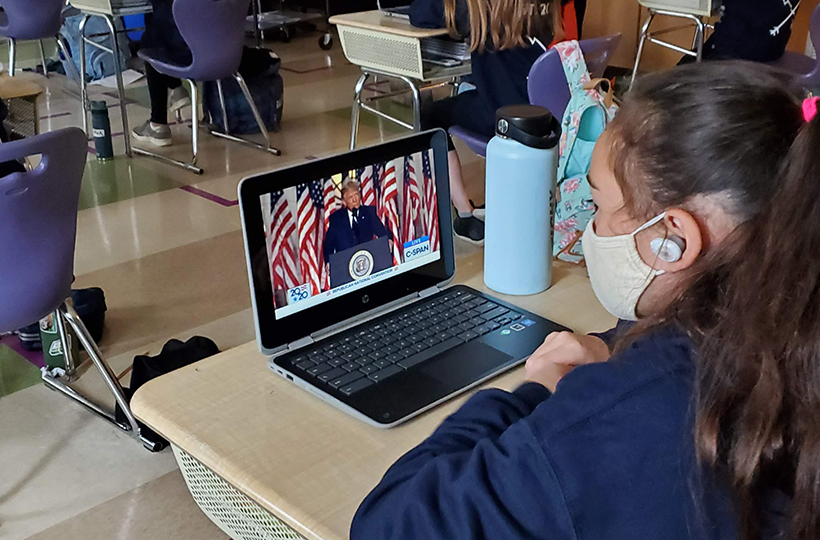
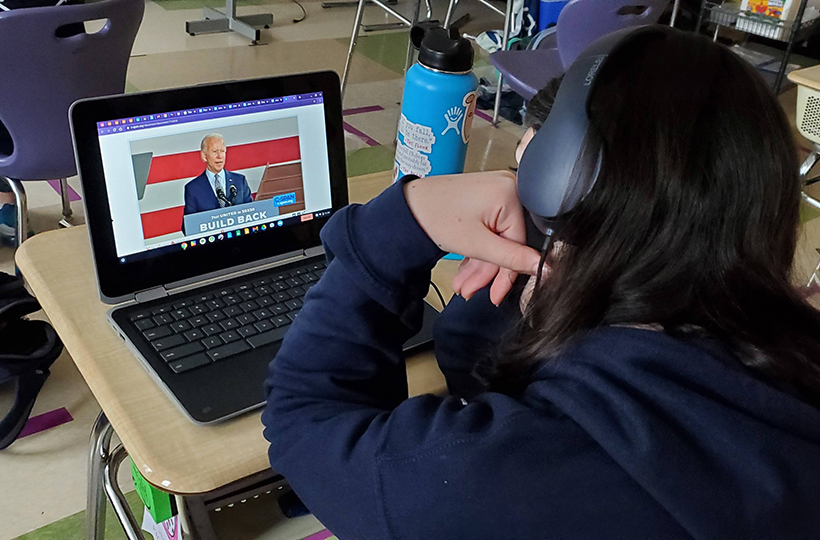
Throughout the history of the U.S., many groups have been limited in their right to vote. This continues today.
In one lesson, we looked at the Voting Rights Act of 1965, how it was created, passed and what it guaranteed for Americans. We learned about John Lewis, who marched for our right to vote. And we looked at voter disenfranchisement through history and right now. We discussed a quote from John Lewis: “My dear friends: Your vote is precious, almost sacred. It is the most powerful nonviolent tool we have to create a more perfect union.”
“My dear friends: Your vote is precious, almost sacred. It is the most powerful nonviolent tool we have to create a more perfect union.”
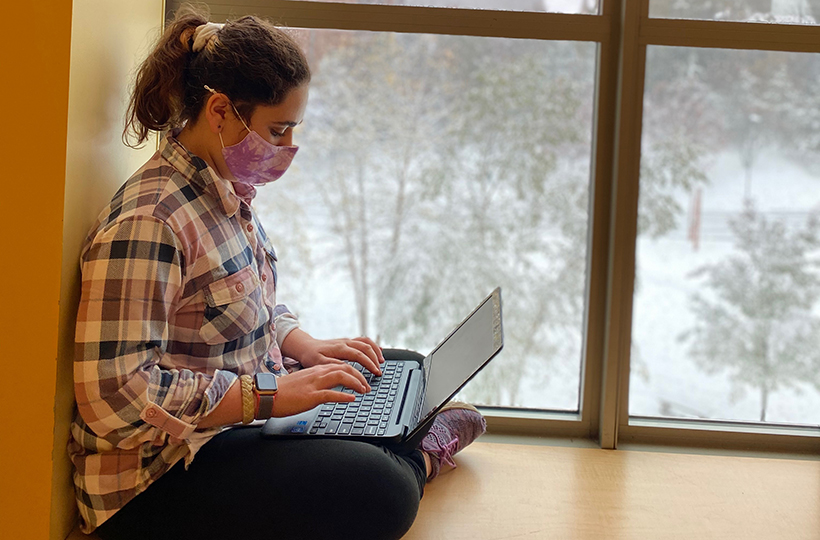
On Monday, a panel of young Rashi alumni who are or have been involved in politics will be joining our students to talk about what they do and what motivated them to get involved. The panel includes:
- Levi Trestan, worked on Elizabeth Warren’s campaign among many current initiatives leading up to the election
- Aviva Rosman, co-started a non-profit called Ballot Ready
- Izzy Klein, working on Michelle Wu’s campaign for mayor of Boston among other initiatives
- Jacob Fridman, Founder of peoplesbignews
What they’re voting on: Grades 6 – 8 will be voting on a quote that will be placed in the third floor hallway. These quotes will be semi-permanently put on the walls – similar to the text that Rashi alums chose for the chadar ochel (dining hall) – with the possibility of selecting new quotes and texts every four years.
Here are their choices:
- “Not everything that is faced can be changed, but nothing can be changed until it is faced.” – James Baldwin
- “You are not obligated to complete the work, but neither are you free to abandon it.” – Pirkei Avot
- “If you will it, it is no dream.” – Theodor Herzl
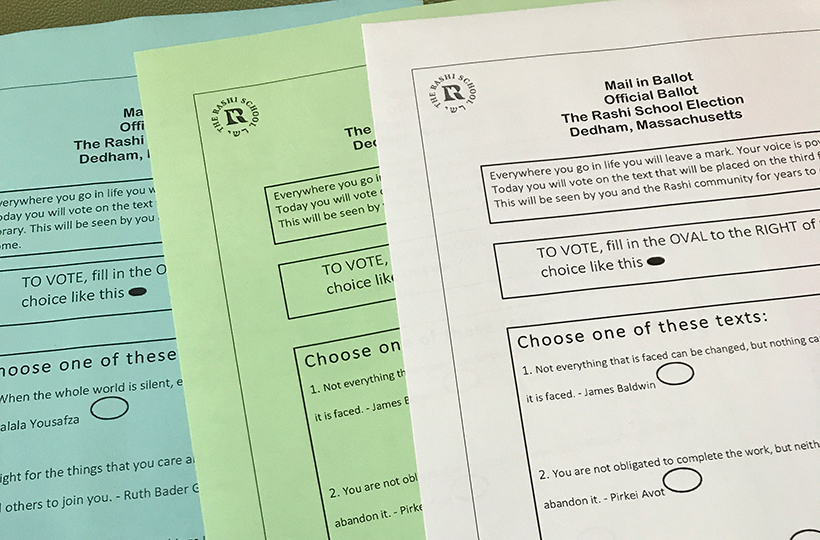
Step you can take: Ask them about the stance the candidates take on key issues.
Stephanie, Sherman, and Sarah interviewed students across grade using prompts about the presidency, the importance of everyone voting, and the qualities of an effective leader. They gave students the following prompts:
- The first thing I would do as president would be…
- It’s important for everyone to vote because…
- A leader should be…
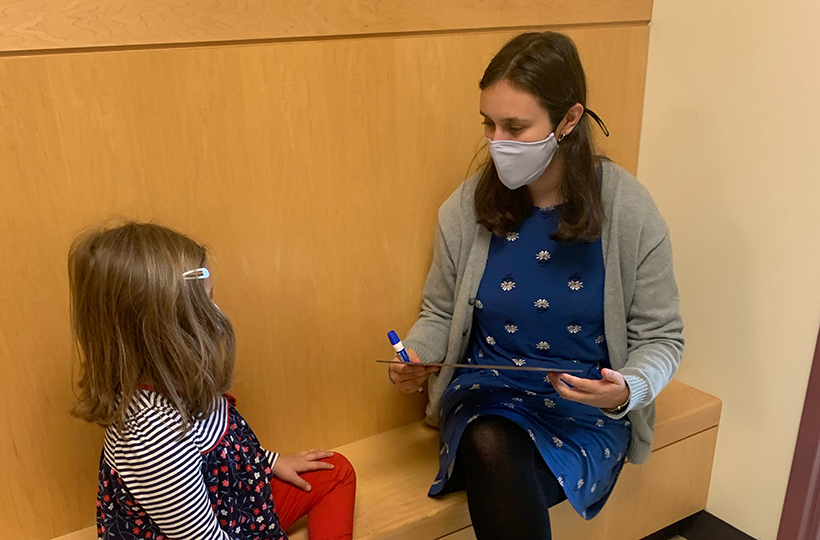
This school-wide unit was rooted in the Jewish text of Isaiah: “Cry aloud, spare not, lift up your voice like a shofar.” (Isaiah 58:1).
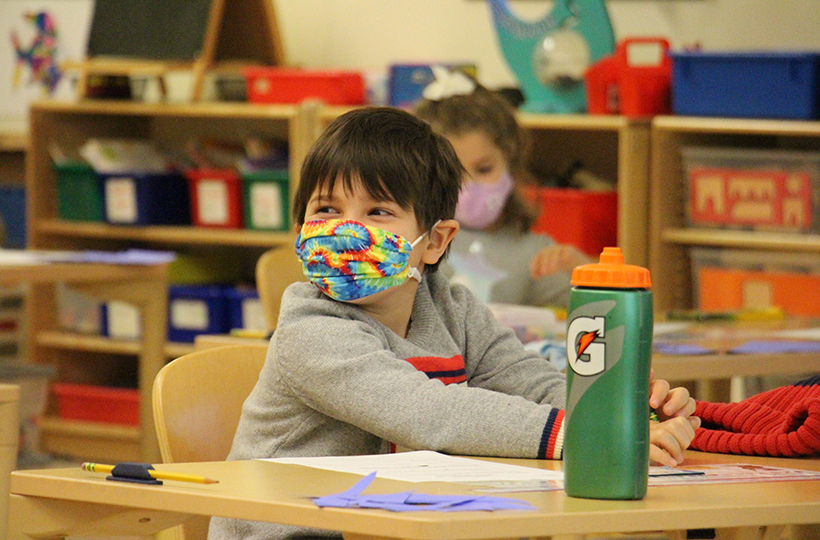
“Cry aloud, spare not, lift up your voice like a shofar.” (Isaiah 58:1)
Rashi students learned about the importance of their voices, and we are confident that in years to come, they will use them to vote, and make our world a better place.
